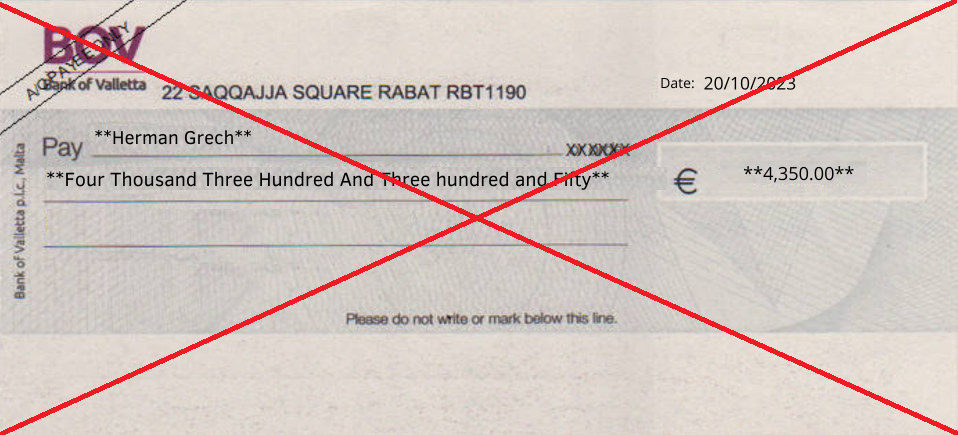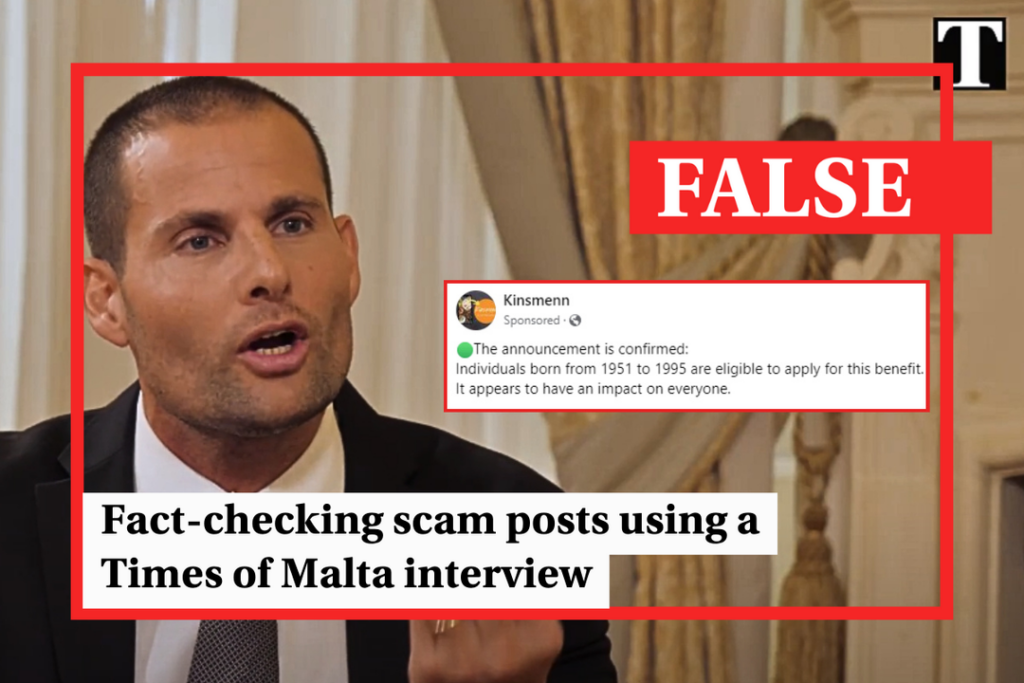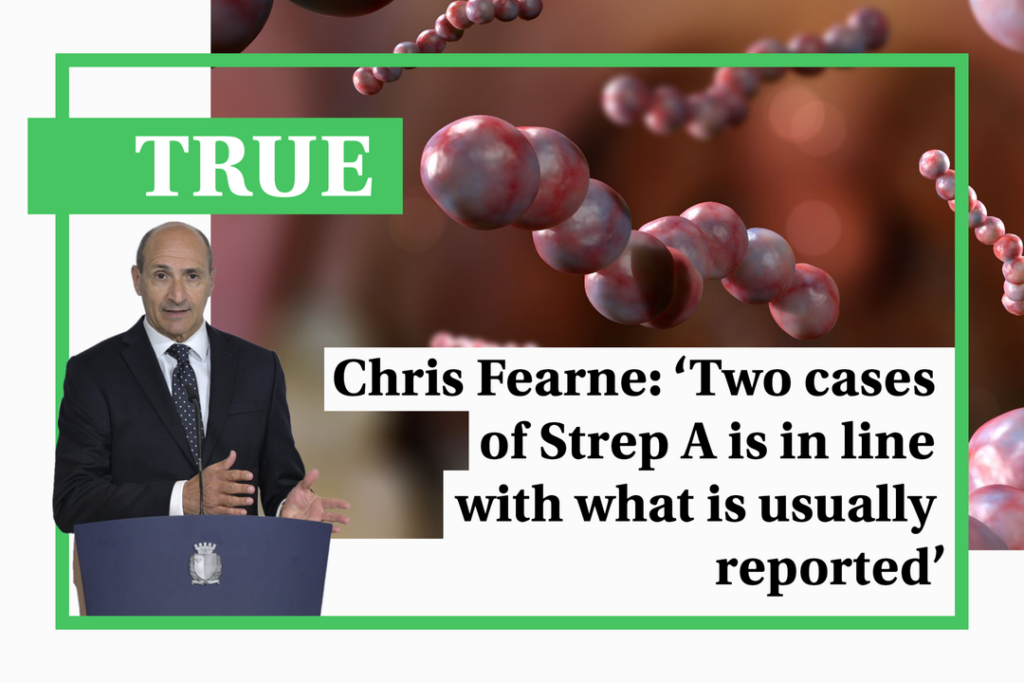Posts promoting a cryptocurrency scam posing as an interview between Prime Minister Robert Abela and Times of Malta journalist Mark Laurence Zammit have been widely shared over social media over the past few days.
The scam uses many well-worn tropes in its attempt to fool readers into handing over their personal details.
Similar scams often use an interview format with an influential person such as a celebrity or political figure to drive their point home. The fabricated interviews often feature convoluted discussions about how the scheme supposedly works and how much you can earn.
In this particular scam, we’re told that Abela is making “tens of thousands” a day, before we get to the outlandish claim that the interview “was interrupted by the Maltese Security Commission, which demanded its immediate closure”.
These tropes make the scam relatively easy to spot to the trained eye. However, this scam is an example of how scammers are becoming more adept at using local knowledge to trap vulnerable viewers into believing they are genuine.
Scammers using local knowledge
Last month, a similar cryptocurrency scam displayed detailed knowledge of key players in the investigation into the assassination of Daphne Caruana Galizia, weaving together real facts, events and photographs with false statements.
This scam adopts a similar approach, using photos taken from a real interview carried out by Zammit with Abela in November 2022 and interspersing it with an entirely made-up, transcript of the interview.
In a bizarre left-turn, the interview is at one point interrupted by a call from former minister Manuel Mallia, who is described as “one of the most powerful millionaires”.
The scam also uses an image of a fake BOV cheque made out to Times of Malta editor-in-chief Herman Grech, supposedly showing Grech’s earnings from the fraudulent crypto scheme.
Although the image of the fake cheque is manipulated and contains an error, it can easily deceive some unsuspecting readers.
Grech told Times of Malta that he was contacted privately for advice on how to invest in the scam by an elderly acquaintance who came across the interview and believed it to be genuine.
Writing on Facebook, Grech said that he had filed a report about the incident with the police’s cybercrime unit, who said they were aware of the scam and were taking measures to “establish the identity of the culprit”.

Multiple posts from a new Facebook account
The posts originate from a relatively new account, seemingly created with the specific intention of sharing disinformation and scam posts.
The account was created on 6th October and uses a fake address and contact information in its description. It also uses a profile image and cover photo that is an amalgamation of an image first used in another scam website and a stock photo found on several reputable stock photography websites.
This account has run nine paid adverts on Facebook and Instagram over the past week, all of them sharing the same type of disinformation.
Many of the posts make reference to a mysterious benefit, saying “all people born between 1951 and 1995 can apply for this benefit”, in the hope of encouraging viewers to click on the link. Once they do, readers are taken directly to the fabricated interview between Zammit and Abela.

The posts all target people in Malta over the age of 25. In total, the posts have been viewed over 130,000 times since 26th October, when the first was posted.
While several people commenting beneath the posts were quick to point out that it is a scam, others were less certain, with some asking for more information about whether people born before 1951 can also apply for the non-existent benefit.
Verdict
The posts are a typical example of a cryptocurrency scam using local figures to dupe people into handing over personal details.
The posts, however, are the latest in a line of scams using increasingly in-depth knowledge of local issues and personalities to deceive readers.
The posts and spoofed website appropriate a real-life interview between journalist Mark Laurence Zammit and Prime Minister Robert Abela held in November 2022.
The claim is therefore false, as the evidence clearly refutes the claim.
The Times of Malta fact-checking service forms part of the Mediterranean Digital Media Observatory (MedDMO) and the European Digital Media Observatory (EDMO), an independent observatory with hubs across all 27 EU member states that is funded by the EU’s Digital Europe programme. Fact-checks are based on our code of principles.
Let us know what you would like us to fact-check, understand our ratings system or see our answers to Frequently Asked Questions about the service.





